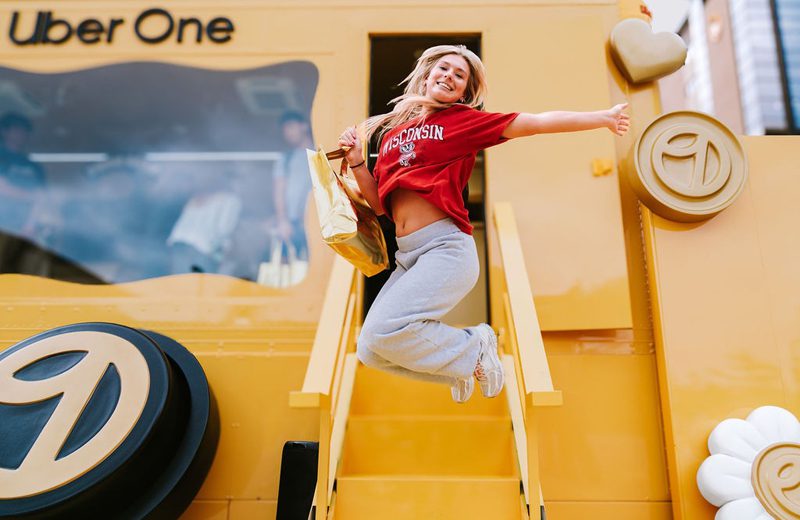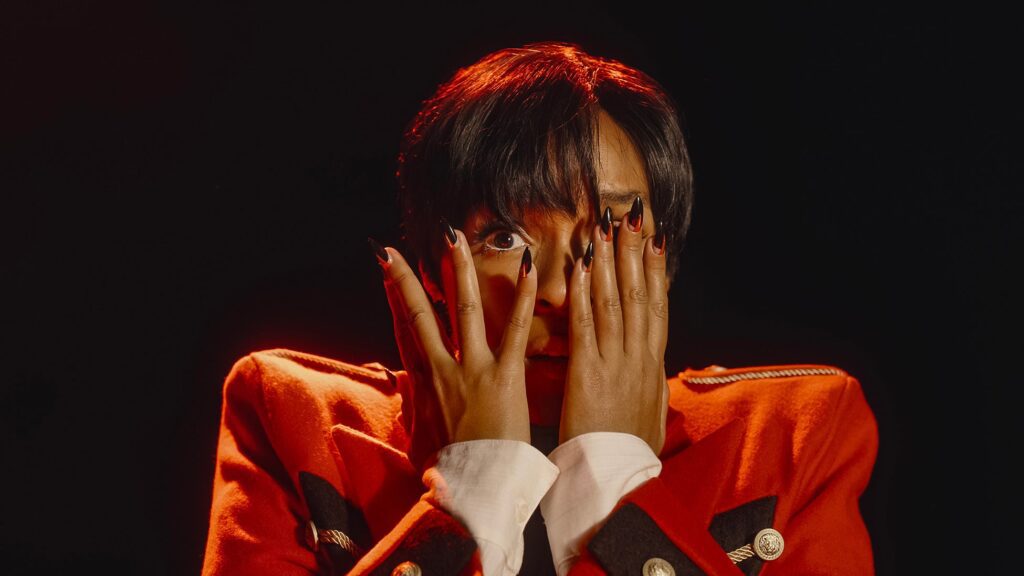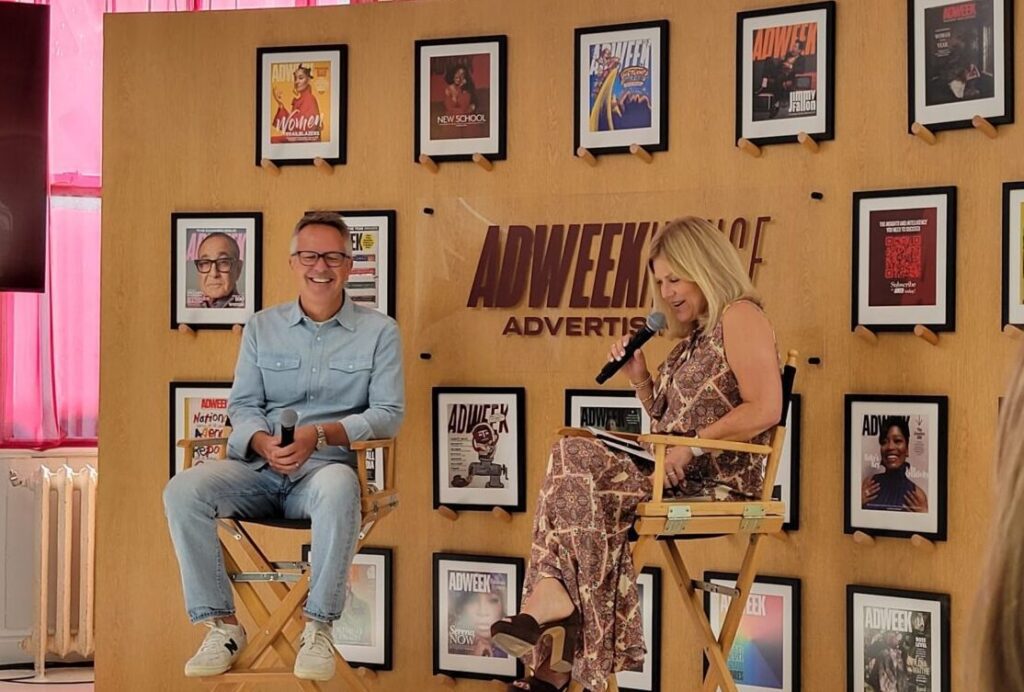American Airlines sponsored several African-American philanthropic events in 2001. But research found that black consumers still didn’t view the brand as relevant.
So the Dallas-based airline made the decision to create programs that would fully entrench its brand in the African-American community. “We realized that all consumers want to be talked to as individuals,” says Alysa Jackson, American’s national advertising and promotions manager for specialty marketing.
Last spring, it launched Comfort Zone, an effort whose name played on two themes: the literal comfort of the extra leg room in American cabins, and the figurative level of satisfaction African-Americans had with the airline.
The campaign centered on Comfort Zone parties in American’s five hub markets. Urban radio stations (including many featuring ABC Radio Netwok on-air personality Tom Joyner) held call-in contests giving away passes to the parties, which featured raffles awarding trips on the Tom Joyner Fantastic Voyage, an annual week-long Caribbean cruise. Don Coleman Advertising, Southfield, MI, handled.
American followed up that campaign by sponsoring Sisters in the Spirit, a national gospel music tour that concluded last fall. This spring, it’s teaming with Coca-Cola, Atlanta, for a sweepstakes giving away trips to Hawaii that will be advertised in the April issues of African-American magazines including Ebony and Black Enterprise.
American and dozens of other brands are getting serious about targeted marketing at the right time. African-Americans now account for two out of every three dollars spent by minorities in the U.S. and command an estimated $572 million in buying power, according to New York City-based MarketResearch.com — which predicts that the figure will jump 19 percent to $682 million by 2006.
Long perceived as predominately lower class, nearly half of the 36.4 million African-Americans in the U.S. (about 13 percent of the total population) are now ranked as middle class: 5.3 million of the 12.8 million black households earn more than $35,000 annually; more than 14 million now live in suburbs, and 10 percent of those suburban dwellers earn more than $100,000 annually, according to the most recent U.S. Census.
“We see [marketing to African-Americans] not as a moral obligation, but as a business opportunity,” says Andy Bonaparte, senior director of advertising and ethnic marketing at Burger King Corp., Miami. “Blacks and Hispanics account for 30 percent of our overall sales.”
According to a recent study by Chapel Hill, NC-based Yankelovich Partners, 89 percent of African-Americans say they’re more likely to patronize a brand they believe is marketing directly to them and giving something back to their community — compared with just 69 percent of whites.
“When we look at purchase frequency, African-Americans index much higher than other groups,” says Cori Lopez, consumer promotions and p.r. manager at Unilever division Lawry’s Foods, Monrovia, CA.
That’s serious business, indeed.
Strengthening Ties
As the American Airlines example shows, token efforts — in both senses of the word — don’t really cut it with this demographic.
“There’s a need for us to have an open dialogue with the African-American community,” says Gregory Dixon, manager of customer relationship marketing at Volvo Cars North America, Irvine, CA. Volvo is in the midst of its largest targeted promotion to date, a minority-focused Buckle Up for Safety campaign hosted in conjunction with The Edward Davis Education Foundation, On Wheels, Inc., and The National Highway Traffic Safety Administration. Media advertising and activities at ethnic events around the country (including a December Kwanzaa Festival in New York City) bring the message locally. “This wasn’t our first campaign [to blacks] and it won’t be the last,” promises Dixon.
Stamford, CT-based Mott’s, Inc. this month expands its second-annual Hawaiian Punch Black History: Our Words! Our Art! contest from eight to 16 markets. The month-long program asks students to share what they’ve learned about African-American historical figures; first- and second-graders submit artwork, while third-through sixth-graders write essays. Forty-five winners, selected by The National Association of Black School Educators, win family trips to Orlando, FL. Ethnic shop Savoir, Atlanta, handles.
Hawaiian Punch adds local flavor by sending brand representatives to participating schools to drum up interest and hosting parties for the winners, according to brand manager Tim O’Brien.
Historically, marketers hung most — if not all — of their targeted efforts on tentpole events such as February’s Black History Month or December’s Kwanzaa. But while any marketing is certainly better than none, some feel such short-term efforts short-change both the audience and the potential results.
“African-Americans have a problem with brands coming in, doing a one-shot effort, and not coming back,” says Howard Buford, president-ceo of multicultural agency Prime Access, New York City. “You can’t just do a six-month run and expect great results. There needs to be continuity.”
Some marketers are taking that to heart. Heineken Beer, White Plains, NY, is broadening its efforts from sweeps and contests that previously ran during specific periods to broader “urban marketing” programs for which African-Americans are a large (although not exclusive) component. “We’re focusing on national campaigns that appeal to a wide variety of what would be considered ‘urban demographics,’” says brand manager Scott Hunter Smith. (Ryan Partnership’s Atlanta-based PanaVista unit is ethnic agency of record.)
Among those initiatives is Heineken House Party, a retail campaign launched last year to tap into June’s designation as Black Music Month. The sweeps provides a winner and 50 friends the house, music, food, drinks, and even celebrity appearances. The effort actually outlasts June, continuing through summer and featuring different packaging and P-O-P materials each month.
Likewise, Troy, MI-based Kmart has significantly broadened its horizons. In 2000, the chain ran a six-week campaign called Share the Word that was tied to Black History Month. In 2001, it joined with The Smithsonian Institution for Wade in the Water, a mobile tour celebrating more than 100 years of gospel music that reached 160,000 people from February through November. (Don Coleman handled, in conjunction with Mobility Resources Associates, St. Clair Shores, MI, and Trailer Technologies, Inc., Walled Lake, MI.)
“It’s important for us to have strong multicultural programs,” says Gail Lee, the chain’s director of multicultural initiatives. “There is a Kmart minutes away from 85 percent of the people in the U.S.”
Kmart last year also became a leading sponsor of Tom Joyner’s show, and hosted its own sweeps dangling Fantastic Voyage vacations. Entries were available in-store and on the Tom Joyner Web site. Kmart featured P-O-P materials in all 2,100 U.S. stores and drew more than 100,000 entries in four weeks. (The chain is considering a repeat performance this year.)
The retailer even began getting targeted with its targeting by sponsoring the 2001 concert tour of child hip-hop star Lil’ Bow Wow, executing in-store through a gift-with-purchase offer. “There was a gap in Kmart’s efforts to tweens, so this helped let them know it’s cool to shop here,” says Manny Fields, senior vp-group account director at Don Coleman.
Neighborhood Staples
The goal of any successful campaign is to show a genuine connection with the African-American community. Burger King, for instance, celebrates Black History Month this year not by showcasing well-known black luminaries, but through a campaign called Everyday Heroes that recognizes the achievements of more obscure figures such as chess grand master Morris Ashley and Brigadier General Ronald Coleman. The chain expects to distribute 10 million special calendars through 4,000 restaurants. UniWorld Group, New York City, handles.
Meanwhile, Kraft Foods, Glenview, IL, partners with Detroit’s Motown Records on Women of the Times, a 10-song CD featuring such African-American singers as Erykah Badu and Patti LaBelle that will be sold through P-O-P displays in grocery stores through February. The CDs retail for $16.98 or $2.99 with three Kraft proofs of purchase; Kraft will donate 25 cents (up to $80,000) to the United Negro College Fund for every CD purchase. Radio spots support. UniWorld Group handles.
Georgia Power, Atlanta, has had such success with its sponsorship of the Atlanta Football Classic, a two-year-old charity football game featuring two all-star teams from black colleges, that it is considering other similar sponsorships outside of Georgia, according to Henry Kelly, marketing regulatory affairs manager and a member of 100 Black Men of Atlanta, the civic group that hosts the game. (Last year’s event drew 64,000 attendees and was broadcast regionally on Fox Sports.)
Burger King recently donated $250,000 as part of a two-year sponsorship of First Serve, a national program conducted by the United States Tennis Association, White Plains, NY, that exposes inner-city kids to tennis and computers. Media sponsor Court TV, New York City, supports with PSAs. “Other programs just haul kids off somewhere for a few hours,” says Tom Fetzer, the USTA’s chief executive-community tennis. “This is something that’s right in the community.”
And that’s exactly where brands need to be.
 Network
Network

